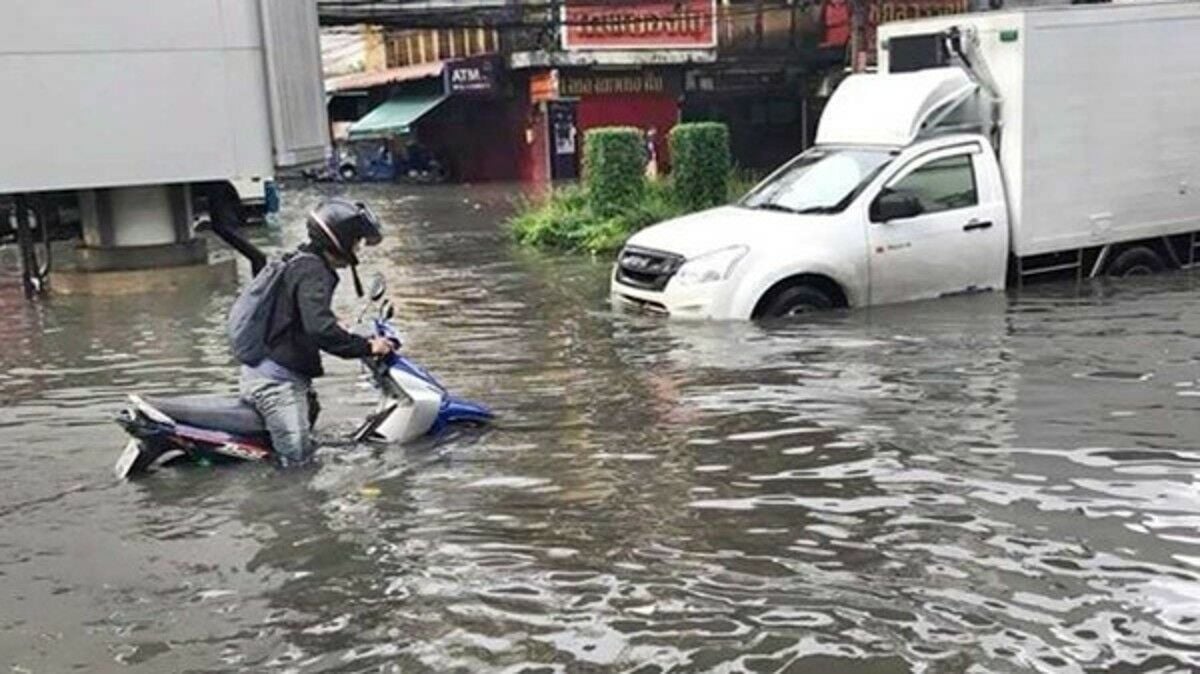Bangkok could be submerged in seven years warns economist

A Thai economist warned that Bangkok could be submerged by the sea within the next seven to eight years. The government has been urged to take immediate action to prevent significant economic and social damage.
Anusorn Thammajai, Dean of the Faculty of Economics at the University of the Thai Chamber of Commerce and former member of the National Research Council of Thailand highlighted in a recent discussion the escalating impact of natural disasters on the quality of life and the economy. He pointed out that issues such as flash floods, global warming, and severe climate fluctuations are becoming increasingly problematic.
Research on the La Niña phenomenon in Thailand indicates that it could last for nine to 12 months, leading to lower temperatures and a potential increase in rainfall up to 14 billion cubic metres. This could severely damage the agricultural sector in many areas, causing both droughts and heavy floods.
Anusorn stressed that if the government allows the recurrent problems of floods and droughts, combined with over four months of air pollution annually, to continue, the economic and quality of life impacts will worsen.
Anusorn mentioned a Greenpeace study warning that in the next seven to eight years, Bangkok might submerge under the sea, leading to severe economic and social damage if preventive measures are not taken seriously now. The intertwining of the economy and the environment is becoming increasingly significant.
Expressing concern, he noted that Bangkok could be underwater in the future, causing extensive damage to infrastructure and large-scale construction projects by both the government and private sector. Without serious study on Bangkok’s subsidence and the rising sea levels, and without significant investment to prevent Bangkok and its metropolitan area from submerging, the city faces a dire future. According to the Greenpeace study, if over 80% of Bangkok is submerged, the economic damage could be estimated at 18.6 trillion baht, affecting over 10.45 million people.
Solutions
To address this looming crisis, Anusorn proposed six urgent policies: constructing water barriers, elevating coastal roads, which are large-scale projects requiring substantial budget planning from the government; and planting mangrove forests to act as buffer zones to absorb water and mitigate the impact of sea waves. Planting mangroves along areas from Bang Khun Thian, Samut Songkhram, Samut Sakhon, to Samut Prakan would restore nature and also serve as tourist attractions.
Additionally, he suggested re-organising coastal land use, decentralising investment to regional areas, shifting to renewable energy, and studying the potential relocation of the capital. The policy of moving the capital, akin to Jakarta, should be seriously considered. He urged that the new government must start investing in preventing Bangkok and its metropolitan area from sinking under the sea, reported KhaoSod.
Latest Thailand News
Follow The Thaiger on Google News:


























